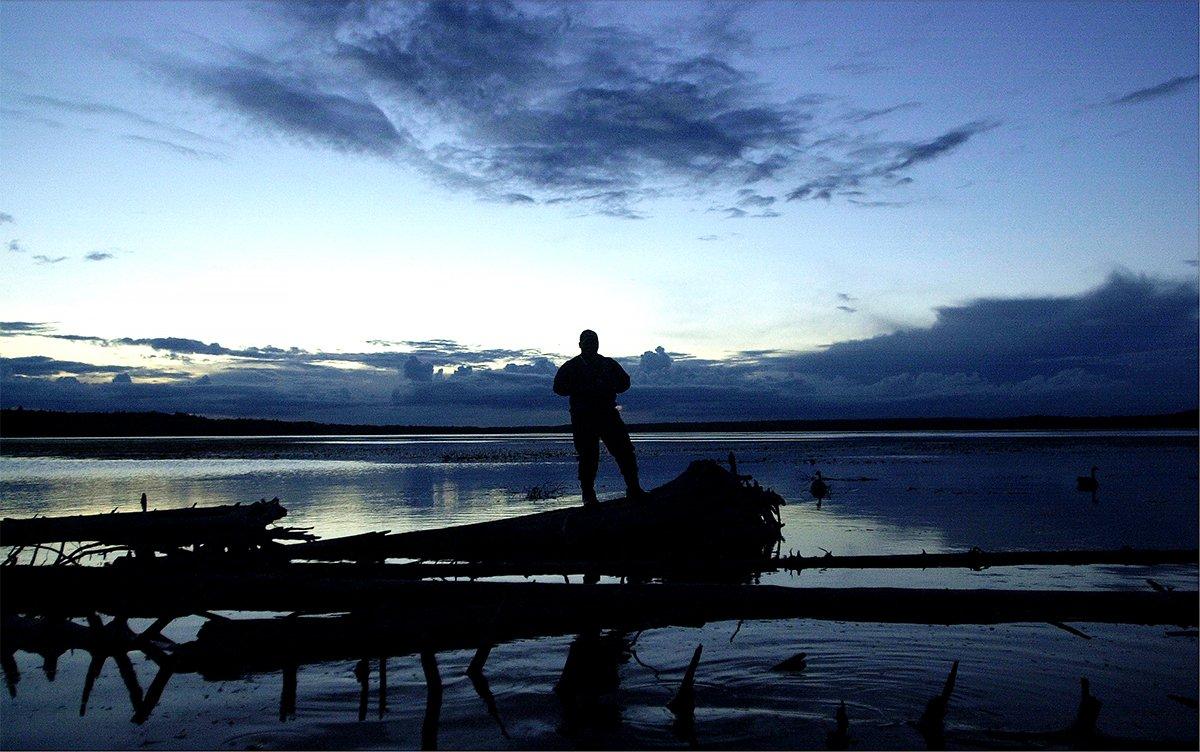High-Level Hunters Reveal Their Favorite Areas
At some point in your waterfowling career, someone will ask, If you could only hunt one place, where would it be?
Maybe it's the pothole where you shot your first duck or a familiar local wildlife area. Or perhaps it's a far-flung destination you've only visited once. We all have favorite spots for various reasons. Heck, even waterfowl pros who have hunted across the continent have personal top areas, so we posed the one-spot question to several high-profile hunters. Here are their picks.
A Delta Favorite
John Gordon, who handles public relations for Banded and Avery, didn't hesitate when choosing one spot to hunt forever: an oxbow lake south of Greenville, Mississippi, in the Mississippi Delta.
It's owned by one of my closest friends; a man I first met 30 years ago when we were freshmen at Mississippi State, he said. My first hunt there at his lake was in January 1992. We had been coming down there to his farm for doves since 1988 but had only talked about duck hunting. He had graduated in December, and myself and some of our other close friends who still had a little time left in school went down there to hunt ducks. We were young, with our whole lives ahead of us then. With youth comes freedom and the ability to totally immerse yourself in a moment without the burdens of adulthood. We hunted, we laughed — we truly had a great time.
And the friends have continued to hunt there since, throughout trials and achievements in their lives, Gordon said.
The hunting itself has been great, and it has been poor, but the friendship is what makes it all worthwhile, he said. Sure, I could choose anywhere in the world and kill more ducks. But at age 48, that goal has taken a back seat to the experience itself. I am lucky beyond measure to have the friends that I do. The richest people on the planet cannot buy that. And they can't hunt there, either.
Home in the Heartland
Tony Vandemore doesn't have to travel far to his ideal destination. It's Habitat Flats, Vandemore's world-class waterfowl operation near Sumner, Missouri.
I think Missouri is going up in terms of the number of ducks it holds and winters, he said. There's a variety of different habitats, from managed moist-soil marshes, flooded corn fields, oxbow sloughs, flooded timber, rivers and creeks, and all are good at one time or another. For me, if I could only go to one, it would be a timber hole in north-central Missouri — blue sky, cool temps, and a 10- to 15-mph wind. That's the recipe for a stellar hunt.
Life on the Grand Prairie
Chad Belding, host of Banded's The Fowl Life, has hunted many areas, including Idaho, Saskatchewan, the Dakotas and the Eastern Shore. Still, there's one spot that brings him back year after year.
I just love Arkansas, he said. The Grand Prairie during duck season, it's almost religion down there.
The hunting — flooded timber, rice marshes or other habitats — can be great, Belding said, although there's no guarantee you'll smash limits every day. Belding really enjoys the waterfowling culture of the region, calling the Grand Prairie kind of a neighborhood of duck hunters.
It's just that whole aura of that place, he said. It has duck hunting written all over it. Being from the West Coast … it never gets old. Many years, I tell myself I'm going to spend the entire 60-day season down there. You feel like a duck hunter and feel like you fit in.
Everything in that 60-day period is about ducks, and you know it. Everybody is dressed in camo and living the lifestyle. The hunting is not world-class every day, but when you have that personality … it just seems like that's where you need to be.
Prairie-Slough Paradise
Noted waterfowl writer John Pollmann lives in South Dakota, so he has many great options for duck hunting. Still, one stands out.
Your question has brought back a ton of memories for me, including a number of hunts I shared with my best friend some years ago when we were guiding for an operation in South Dakota, he said. The best of those hunts share one thing in common: They were all over water, targeting mallards returning from a morning feed. Sometimes, the pond, slough or marsh was the same water body the birds were using as a nighttime roost. Other times, it was a late-morning-through-late-afternoon loafing spot. The hunts were absolutely dynamite.
So, if I could pick one scenario to hunt for the rest of my life, it would be the aforementioned scenario for two main reasons. One, the birds are in a habit of using the particular piece of water, and, after feeding, want to get down for a drink. There just isn't much of a hesitation to on their part. Two, the birds tend to be call-friendly, which to me is what duck hunting is all about.
Pollmann said the rise of field-hunting using spinning-wing decoys has diminished the number of over-water mallard hunts the past few years, as he believes ducks get blown out of their daily movement routines.
Sure, I love spinning big bunches of mallards over the corn, but there is nothing better than calling ducks over water, he said. Give me a late-October morning with big blue skies, a decent breeze and mallards coming back from a feed, and I'm a happy, happy man. There just aren't too many things better than hearing the sound of the wind ripping through their primaries as they cut through the sky and begin to swing the decoys before snapping to the call to center in front of the blind. That's what I hope heaven looks like.
Click here for more Realtree waterfowl hunting content. And check us out on Facebook.







